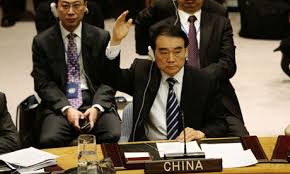
China’s anger at South Korea’s decision in early July to proceed with the deployment of an advanced U.S. missile defense system could weaken its commitment to U.N. sanctions against North Korea adopted in March.
Lee Seong-hyon, a research fellow at both the Sejong Institute in Seoul and the Center for Korean Peninsula Studies at Peking University, said: “Both China and North Korea see the Terminal High-altitude Area Defense system as being deployed by their common enemy, so based on their perception of security threats, I think it will bring them closer together. China and North Korea have decided to recover their relations and mend their fences.”
Some believe that Seoul ultimately decided to deploy THAAD after debating the issue for several years as a means to press Beijing to help tighten sanctions against Pyongyang. If that was the motivation, the move appears to have backfired.
Although trade figures for April and May showed a significant drop in China-North Korea trade and analyses of satellite images have counted less truck, train, and ship traffic between the two countries, the drop off could be easily reversed.
At a forum in Seoul before the THAAD announcement, experts expressed concern that China and other nations are unlikely to keep up strict adherence to the latest U.N. sanctions, which were imposed after nuclear and missile tests at the beginning of the year. Some even argued that the measures may actually strengthen the Kim Jong-un regime.
